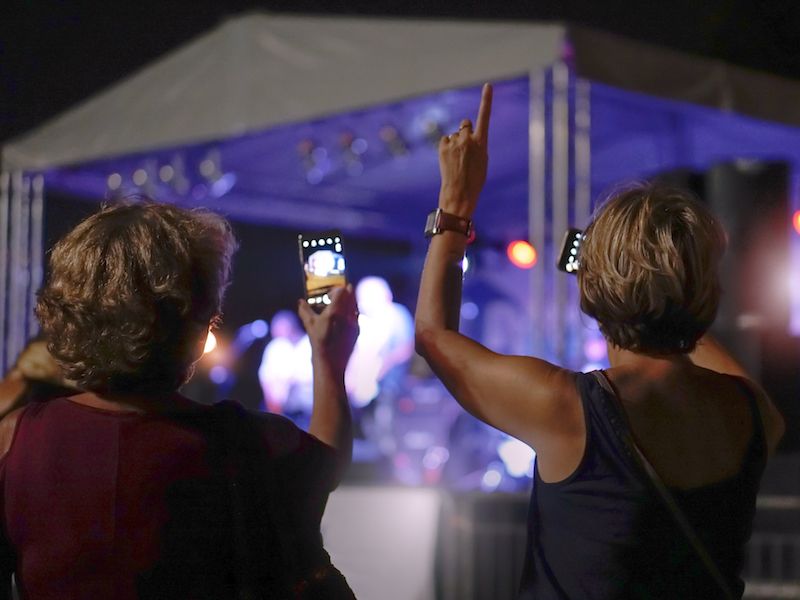
Summer is finally here, and you’re ready for all that fun we’ve been looking forward to: trips to the beach, chilling out by the pool, and impaired hearing? You might find yourself in external situations or subjected to other loud noises this summer that are hidden hazards to your hearing. Any sounds above 80 decibels could injure your hearing, while swimming in pools or other bodies of water can result in permanent loss of hearing. You need to take preventative measures and be aware of your environment in order to protect your hearing this summer. Here are 6 of the summer’s hidden hearing dangers.
When You Travel to Concerts, Use Hearing Protection
The summer season is concert season, but even if you go to an outdoor venue, you still should attend to your hearing. Live music can have volumes over 90 decibels, even at outdoor concerts, which is inside of the danger zone of hearing loss. So whether you’re attending an inside or outside concerts, it’s a good idea to use earplugs. Earplugs reduce the sound while still permitting you to hear and enjoy the music. If you’re going to a performance with young children, think about getting them a heavy duty set of earmuffs because kids have more delicate ears than adults.
It’s Fireworks Can Damage Your Ears Just Loud at Fireworks
Honestly, there are a lot of reasons to avoid fireworks in the summer. This is not about the expert 4th of July displays, we mean the backyard fireworks that cause hundreds of injuries during the summertime. Home fireworks achieve volume levels of nearly 155 which can injure your ears as well as causing hand injuries, blindness and home fires. This year, on the 4yh of July, appreciate the fireworks from a little further away and leave the fireworks to the professionals.
Mowers Can Cause Loss of Hearing
If you care about your lawn, mower, edger, and trimer are your best friends. But have you ever noticed how off your ears feel after you finish, making everything sound muffled? That’s because the lawn tools, which are constantly loud, impact your hearing over time. If you’ve ever noticed lawn care pro’s, it is likely you have seen them wearing hearing protection, next time you work on your yard with noisy power equipment, you should take a hint from them and wear earmuffs or earplugs.
Pools And Beaches, What You Need to do to Protect Your Ears
Huge numbers of people suffer from swimmer’s ear each summer, which occurs when bacteria-laden water becomes trapped in your ear canal. Painful earaches and swelling are the result when the bacteria infects the ear. It’s not only rivers and lakes that have these bacteria, they can also be found in hot tubs and pools if they aren’t cleaned and treated correctly. But if you have your ears treated by a hearing specialist you should be fine, and no permanent hearing loss will happen. To prevent swimmer’s ear, though, you will want to wear special swimming earplugs in the pool and have your pool water tested to be sure the chemical balance is safe.
Boats and Other Water Sports
Summer is a breath of freedom for those who enjoy being out on the water, taking in the fresh lake breeze or the salty air of the ocean. But, jet ski and boat engines can be noisy,they can get up to over 100 decibels. Continual exposure to that kind of noise for about 15 minutes can bring about long-term hearing impairment. In this situation also, wearing a set of throw away foam earplugs is a smart strategy.
Your Ears Can be Hurt by Car Races
It doesn’t make a difference what kind of auto racing you like, midget, Formula 1, drag racing, motorcycle Formula 1. Every one of them can present a huge problem for your hearing if you go to many races this summer. 120 dB is inside of the danger zone for hearing loss and lots of races go way above this. As mentioned earlier, your children should wear muffs whereas you should use earplugs at least. Because you may not be able to enjoy the sounds of any races in the future if you don’t.
